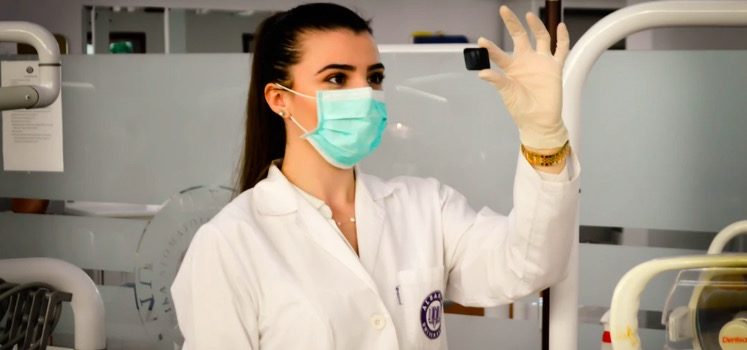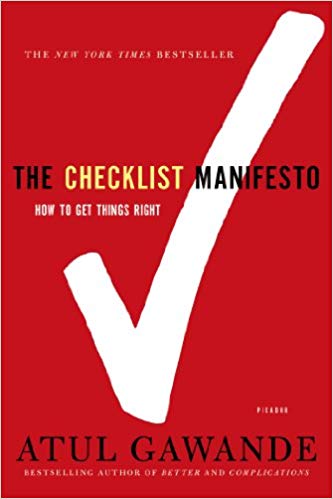

This article is an excerpt from the Shortform summary of "The Checklist Manifesto" by Atul Gawande. Shortform has the world's best summaries of books you should be reading.
Like this article? Sign up for a free trial here .
Doctors make mistakes. How can those in the medical community avoid the avoidable errors that sometimes cost patients their lives?
The answer is the checklist. We’ll cover studies that show how a simple checklist can help doctors avoid making avoidable mistakes.
Doctors Make Mistakes. How Can They Avoid Them?
In a 1970s essay on human fallibility, Samuel Gorovitz and Alasdair MacIntyre argued that in some cases we fail due to “necessary fallibility” — because we’re trying to do something humans are incapable of. Much of the universe is unknown to us; there are limits to what we can know and do.
Yet we also fail frequently in areas where we have control. Gorovitz and MacIntyre argued there are two reasons:
- Ignorance or lack of knowledge.
- Ineptitude, meaning we have the knowledge, but don’t apply it correctly.
Mistakes due to ignorance can be addressed with more education and experience. But knowledge doesn’t make a difference if we fail to apply it or do so incorrectly. An experienced meteorologist can miss signs of a storm’s likely behavior, or a skilled doctor can forget to ask a patient a critical question. This is one reason doctors make mistakes.
Ineptitude in Action
Surgeons like Gawande often tell each other stories of mistakes and near misses, puzzling over how they could have missed seeing something that turned out to be vital. For instance, a surgeon friend told Gawande s story about treating a drunken patient with a stab wound received at a Halloween costume party. The emergency department determined the two-inch-wide abdominal wound wasn’t an extreme injury although he needed surgery, so they parked the patient while the operating room was readied.
Then a nurse noticed his condition was deteriorating. They began life-saving measures and rushed him immediately to the operating room, where they discovered that the man’s stab wound went 12 inches into his body, right into the aorta. With great effort, they managed to save him.
In the process of assessing the patient, the team had gotten almost everything right, but they’d forgotten to ask what he’d been stabbed with, which would have indicated the severity of the injury. A party-goer dressed as a soldier had stabbed him with a bayonet.
Example: Doctors Make Mistakes
In another case, the same surgeon was removing a cancer of the stomach when, about halfway through the procedure, the patient’s heart stopped. The team couldn’t find any cause as they worked to resuscitate him and called for additional personnel and equipment. A senior anesthesiologist who’d been in the room earlier, before the patient had been put to sleep, arrived to help. He asked the attending anesthesiologist if he’d done anything additional since they’d last spoken. The doctor said yes, he’d given the patient potassium when lab reports arrived showing his levels were too low.
When the team dug the IV bag out of the trash, they discovered that the patient had been given the wrong concentration — a lethal dose. Through a variety of heroics, they managed to bring him back. The team was shaken: they’d had all the necessary knowledge and tools, but their ineptitude nearly killed him.
Why Do Doctors Make Mistakes?
Answer: An Explosion of Knowledge and Complexity
In trying to do the right things, the challenge of the 21st century is ineptitude, rather than ignorance. It used to be the reverse. For most of human history, we struggled with scientific ignorance. We didn’t understand how things worked or what caused illnesses and how to treat them.
For instance, doctors didn’t know how to treat heart attacks or how to prevent them as recently as the 1950s. Patients were prescribed morphine and bed rest and, if they survived, they lived as invalids. Today, however, we have a host of treatments and procedures that save lives and limit heart damage. Also, we can prevent many heart attacks because we understand and can mitigate the risks of high blood pressure, cholesterol, smoking, and diabetes.
But while science has increased our knowledge dramatically, we still often fail. Still, doctors make mistakes. The reason isn’t lack of money, malpractice, or government or insurance issues. It’s the enormous and ever-increasing complexity of many fields today. We struggle to apply knowledge the right way at the right moment. Under pressure, we make simple mistakes and overlook the obvious.
For instance, authorities at all levels make numerous mistakes when disasters strike. Attorneys make mistakes in complex legal cases, most commonly administrative errors. We have foreign intelligence failures, cascading banking industry failures, and software design flaws that compromise the personal information of millions of people. Deciding the right treatment among the many options for a heart attack patient can be extremely difficult. Each one involves complexities and pitfalls.
Getting the right thing done is a challenge too. From research, we know that heart attack patients who will benefit from cardiac balloon therapy should have it within 90 minutes of arriving at a hospital. After that, survival rates drop. But a 2006 study showed less than a 50 percent likelihood that a medical staff could get everything done that needed to be done in less than 90 minutes. Similarly, at least 30 percent of stroke patients get insufficient care, and the same is true for 45 percent of asthma patients and 60 percent of pneumonia patients. Knowing the right steps and trying hard aren’t enough.
A Different Strategy
Those on the receiving end of such failures, when doctors make mistakes, naturally react with outrage. We can forgive ignorance and accept that others tried their best with what they knew. But when the experts know what to do and fail to do it, we’re likely to blame gross negligence, incompetence, or heartlessness. This ignores the complexity of many jobs today.
The problem is that across numerous professions — medicine, engineering, finance, business, government — the level and complexity of our knowledge is more than any individual can apply correctly in all circumstances. Knowledge has saved and also overwhelmed us. This is a common reason doctors make mistakes.
Most professions, especially medicine, have traditionally responded to failure by requiring more training and experience. Training of medical personnel, police, engineers, and others is more extensive than ever. Due to increased training requirements, doctors don’t practice independently until their mid-thirties. But while training and experience are important, expertise doesn’t address human fallibility. We need a different strategy for preventing failure that takes advantage of knowledge and experience but also compensates for human flaws.
The solution is a simple checklist.
More Opportunity for Error
Hospital care is increasingly complex, especially critical care performed in intensive care units or ICUs. Fifty years ago, ICUs were uncommon. Today, thanks to our ability to save people from so many things that were once fatal, critical care is an increasingly large part of what hospitals do. Over a normal lifespan, most people will end up in an ICU at some point.
An Israeli study several decades ago showed that the average ICU patient required 178 actions or procedures a day. We have a greater chance than ever before to save someone who’s seriously ill or injured, but it requires both deciding the right treatment and ensuring that 178 tasks, encompassing various individual steps, are done correctly each day. There’s as much chance to harm a patient as to help. Unfortunately, the number of tasks required provides more opportunities for doctors to make mistakes. For instance, with all the tubes required, there are myriad ways to introduce infection. In fact, about half of ICU patients end up with a serious complication.
An increasing number of training programs focus on critical care; about half of all hospitals now have intensive care specialists, called intensivists. But with the increasing complexity of medicine, even specialization can’t keep up. So, in addition to specialists, we have superspecialists, who study and practice one thing, like laparoscopic surgery or pediatric genetic diseases. They have greater knowledge and ability to handle the complexities of a particular job, but they haven’t managed to avoid making mistakes.
Surgery is perhaps the most specialized area in medicine. An operating room has an array of specialists. For instance, there are many kinds of anesthesiologists — for instance, one type focuses on pain control. There are also pediatric, cardiac, obstetric, and neurosurgical anesthesiologists.
Surgeons are highly specialized to the point that they joke about “right ear” and “left ear” surgeons. General surgeons are becoming obsolete and specialties are rapidly dividing into subspecialties. With increased specialization comes lack of coordination and the increased chance that doctors make mistakes.
We’ve seen great advances in surgery, but with greater specialization and more surgery being done — Americans average seven operations in a lifetime — the opportunity for harm also is great. In the U.S. there are three times as many deaths following surgery as there are from traffic accidents. Research shows that at least half the deaths and major complications are avoidable.
The medical profession has tremendous knowledge, but despite extreme specialization and training, practitioners still miss important steps and doctors make mistakes. When superspecialization of medicine isn’t enough, it’s time to look more widely for answers.
———End of Preview———

Like what you just read? Read the rest of the world's best summary of "The Checklist Manifesto" at Shortform . Learn the book's critical concepts in 20 minutes or less .
Here's what you'll find in our full The Checklist Manifesto summary :
- How checklists save millions of lives in healthcare and flights
- The two types of checklists that matter
- How to create your own revolutionary checklist






